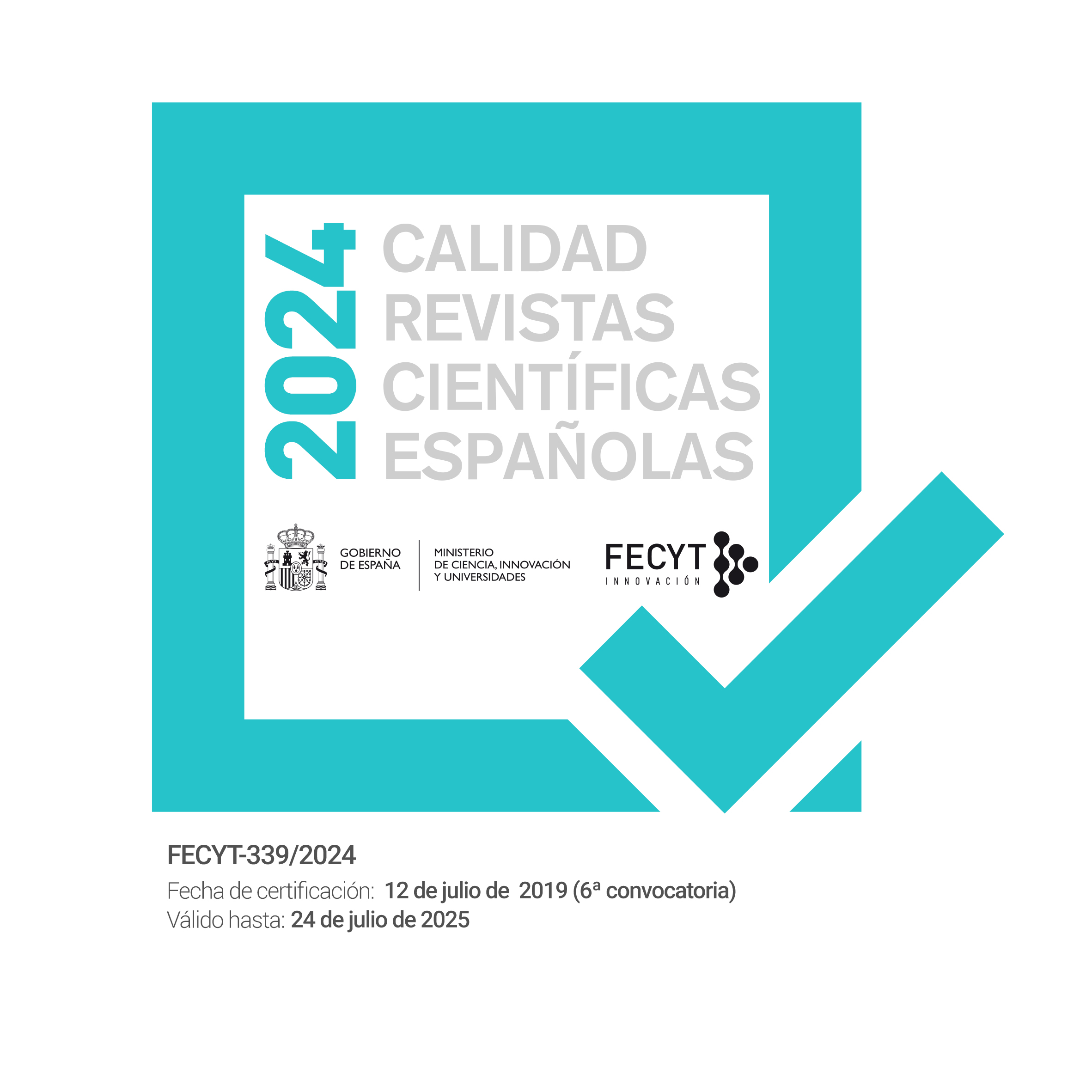Kierkegaard and Schopenhauer: Introduction to its combined analysis
DOI:
https://doi.org/10.24310/Claridadescrf.v10i1.4150Keywords:
KIERKEGAARD, SCHOPENHAUER, ETHICS, ASCETICISM, RECEPTIONAbstract
This article aims to offer an introduction to the relationship between Kierkegaard and Schopenhauer. The first part exposes the criticisms of the Danish philosopher to the author of The World as Will and Representation. The second part analyzes the Spanish lectures dedicated to the study of the link between both philosophers. The first part concludes with the possible answers of the German philosopher to Kierkegaard´s objections. The second part ends with a series of assessments for the joint analysis of both thinkers.
Downloads
Metrics
References
AA.VV., Søren Kierkegaard Skrifter. Copenhague: Gad, 1997 – 2013.
Cabada Castro, Manuel, Manuel Cabada Castro, Querer o no querer vivir. El debate entre Schopenhauer, Feuerbach, Wagner y Nietzsche sobre el sentido de la existencia humana. Barcelona: Editorial Herder, 1994.
Cappelørn, Niels, «Historical Introduction», en Schopenhauer – Kierkegaard:von der Metaphysik des Willens zur Philosophie der Existenz, eds. Niels Cappelørn, Lore Hühn, Søren Fauth y Phillip Schwab (ed.). Berlin: Walter de Gruyter, 2011.
Davini, Simonella, «Schopenhauer: Kierkegaard´s Late encounter with his opposite», en Kierkegaard and his German Contemporaries. Tome I: Philosophy, ed. Jon Stewart. Hampshire: Ashgate, 2007.
De Sousa, Elisabete, «Musical Controversies in Nietzsche and Kierkegaard », en Nietzsche and German Idealism and its Critics, eds. Katya Hay y Leonel Ribeiro dos Santos. Nueva York: Walter de Gruyter, 2015.
Dip, Patricia, «De Kierkegaard a Freud: observaciones sobre la psicología del moderno malestar», Universitas Philosophica 34, 68 (2017): 115–142
Frank, Manfred, «Filosofía como «aproximación infinita». Consideraciones a partir de la «constelación» del primer romanticismo alemán», Análisis. Revista de investigación filosófica 2, vol. II (2015): 311 – 333.
Ginzo Fernández, Arsenio, Protestantismo y Filosofía. La recepción de la Reforma en la filosofía alemana. España: Servicio de Publicaciones de la Universidad de Alcala, 2000.
Giordano, Diego, «A presença de Schopenhauer na obra de Kierkegaard», Sacrilegens. Revista dos Alunos do Programa de Pós-graduação em Ciência da Religião 1, vol. 9, (2012): 5 – 23.
Kierkegaard, Søren, Diario Íntimo. Barcelona: Editorial Planeta, 1993
Kierkegaard, Søren, «El concepto de angustia», en Escritos de Søren Kierkegaard. Volumen 4/2. Madrid: Trotta, 2016 [CA].
Kierkegaard, Søren, O lo uno o lo otro. Un fragmento de vida I. Madrid: Trotta,2006 [OO I].
Kierkegaard, Søren, La enfermedad mortal. Madrid: Trotta, 2008 [EM]. Maceiras Fafian, Manuel, Schopenhauer y Kierkegaard: sentimiento y pasión.Madrid: Editorial Cincel, 1985.
Martínez Herrera, Fernando, La recepción y la crítica de la filosofía postkantiana en Schopenhauer. Tesis Doctoral. Universitat de Barcelona, 2015.
Nietzsche, Friederich, La genealogía de la moral. Madrid: Alianza, 1998.
Philonenko, Alexis, Schopenhauer. Una filosofía de la tragedia. Barcelona: Antrhopos, 1989.
Rabade, Sergio, «Prólogo», en Schopenhauer y Kierkegaard: sentimiento y pasión, Manuel Maceiras Fafian. Madrid: Editorial Cincel, 1985.
Rosset, Clement, Escritos sobre Schopenhauer. Valencia: Pre-Textos, 2005.
Schopenhauer, Arthur, Metafísica de las Costumbres. Madrid: Trotta, 2001.
Schopenhauer, Arthur, Los dos problemas fundamentales de la ética. Madrid: Siglo XXI de España Editores, 2002.
Schopenhauer, Arthur, El mundo como voluntad y representación. Primer Volumen.Madrid: Trotta, 2004.
Schopenhauer, Arthur, El mundo como voluntad y representación. Segundo Volumen. Madrid: Trotta, 2005.
Schopenhauer, Arthur, Lecciones sobre metafísica de lo bello. Valencia: Universitat de Valencia, 2004.
Schopenhauer, Arthur, Parerga y Paralipómena I. Madrid: Trotta, 2009.
Schopenhauer, Arthur, Parerga y Paralipómena II. Madrid: Trotta, 2013.
Stewart, Jon, Kierkegaard´s relation to Hegel reconsidered. New York: Cambridge University Press, 2003.
Stewart, Jon, «Poul Martin Møller and the danish debate about immortality in the wake of Hegel´s philosophy», Estudios Kierkegaardeanos. Revista de Filosofía 1, (2015):115 – 146.
Suances Marcos, Manuel, Sören Kierkegaard. Tomo II: Trayectoria de su pensamiento filosófico. Madrid: Universidad Nacional de Educación a Distancia,1998.
Simmel, Georg, Schopenhauer y Nietzsche. Buenos Aires: Schapire, 1944.
Theunissen, Michael, Kierkegaard´s concept of despair. United States of America: Princeton University Press, 2005.
Urdanibia, Javier, «Dos antihegelianos. De estética y ascética»,Los antihegelianos:Kierkegaard y Schopenhauer, coord. Javier Urdanibia. Barcelona:Anthropos, 1990.
Villacañas, José Luis. Historia de la Filosofía Contemporánea. Madrid: Akal,2001.
Webb, Carson, «Kierkegaard´s critique of eudaimonism», Journal of Religious Ethics, Vol. 45 / 3 (2017): 437 – 462.
Downloads
Published
How to Cite
Issue
Section
License
Esta revista provee acceso libre inmediato a su contenido bajo el principio de hacer disponible gratuitamente la investigación al público. Todos los contenidos publicados en Claridades. Revista de Filosofía, están sujetos a la licencia Creative Commons Reconocimento-NoComercia-Compartirigual 4.0 cuyo texto completo puede consultar en <http://creativecommons.org/licenses/by-nc-sa/4.0>
Es responsabilidad de los autores/as obtener los permisos necesarios de las imágenes que están sujetas a derechos de autor.
Los autores/as cuyas contribuciones sean aceptadas para su publicación en esta revista conservarán el derecho no exclusivo de utilizar sus
contribuciones con fines académicos, de investigación y educativos, incluyendo el auto-archivo o depósito en repositorios de acceso abierto de cualquier tipo.
La edición electrónica de esta revista esta editada por la Editorial de la Universidad de Málaga (UmaEditorial), siendo necesario citar la procedencia en cualquier reproducción parcial o total.















6.png)
